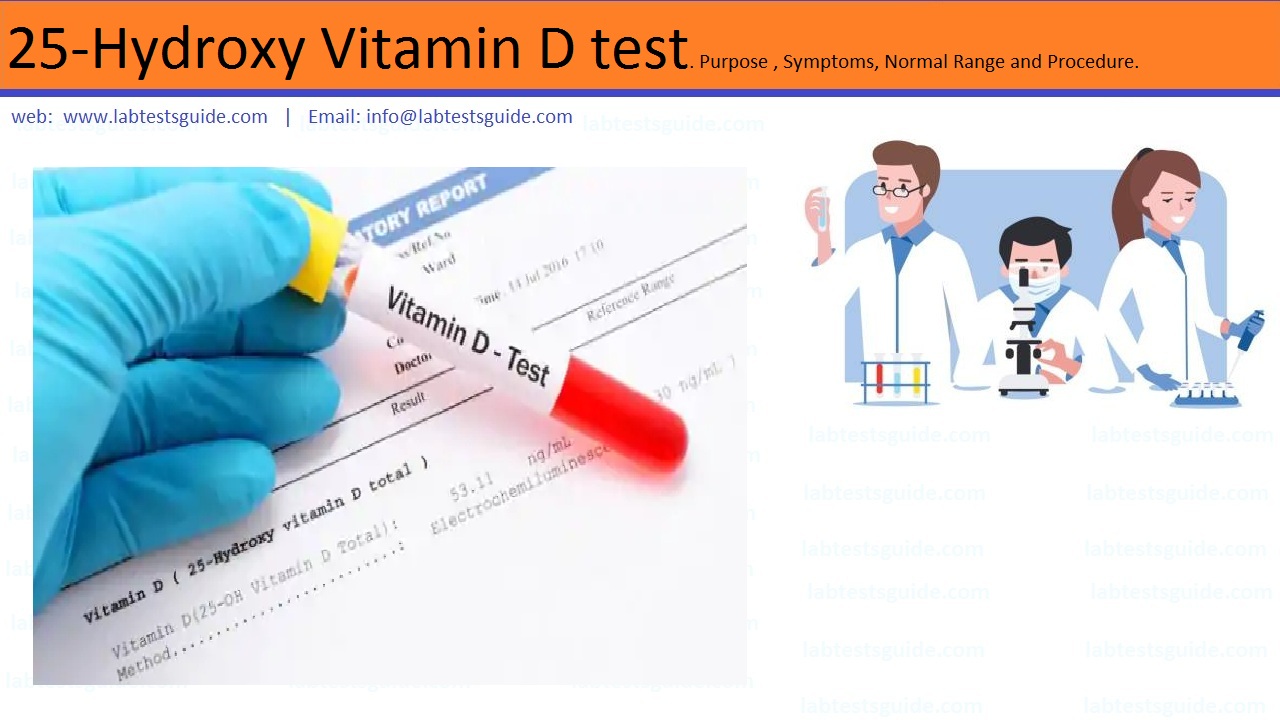Also Known As: Ergocalciferol (Vitamin D2), Cholecalciferol (Vitamin D3). Calcidiol (25-hydroxyvitamin D), Calcifidiol (25-hydroxy-vitamin D), Calcitriol (1,25 dihydroxy-vitamin D), 25-hydroxyvitamin D, 1,25 dihydroxyvitamin D, Vitamin D
Test panel: Vitamin D, Vitamin A, Vitamin B, Vitamin B6, Vitamin B12, Vitamin C, Vitamin E, Vitamin K, Calcium

Why Det Tested:
- Indicated in the postmenopausal women to evaluate Vit.D level which is needed for the absorption of Calcium.
- To evaluate the role of Vit.D in osteoporosis.
- To find the role of Vit.D in the prevention of cancer.
When To Get Tested:
- When you have an abnormal calcium.
- When you have an abnormal phosphorus.
- When you have an abnormal parathyroid hormone level.
- When you have evidence of bone disease or bone weakness.
- When healthcare practitioner suspects that you might have a vitamin D deficiency.
Required Sample
- Venous blood is needed to prepare the serum.
- The random sample can be used.
- The sample is stable at room temperature for 72 hours.
- The sample is stable at 22 to 25 °C.
People at risk of Vit.D deficiency are:
- Infants on breastfeeding (human milk is deficient in Vit.D).
- Occupation when people are not exposed to the sun.
- Individual too fatty with body mass index (BMI) >30 because Vit.D is trapped in fatty tissues.
- Malabsorption from GIT.
- Patient with liver or kidneys diseases.
Normal Values:
- Indicate vit.D deficiency = <20 ng/mL
- Insufficiency of vit.D = 20 to 30 ng/mL
- Optimal level of vit.D = >30 ng/mL
- Toxic level of vit.D = >200 ng/mL
- Recommended dose of vitamin D for adult is 5 µg/day.
Increased level of Vit.D in Seen in:
- Excessive dietary supplement.
- William syndrome. This is a rare genetic disorder.
Decreased level of Vit.D is Seen in :
- Rickets.
- Osteoporosis.
- Liver diseases.
- Renal diseases.
- Inadequate dietary intake.
- Inadequate exposure to sunlight.
- Acute inflammatory diseases.
- Familial hypophosphatemic rickets.






